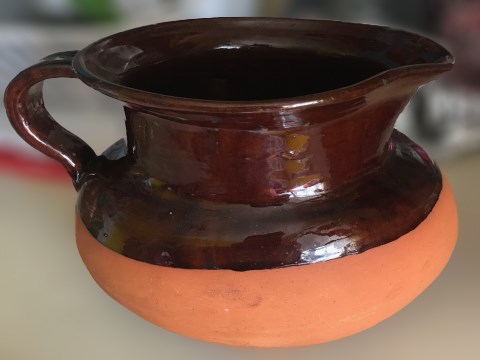New Yorkers are being warned to avoid using traditional, non-food safe clay pots, cups, and dishes for cooking or serving foods and drinks after 15 cases of lead poisoning in children and adults were tied to the ceramic wares.
The New York City Health Department said those with lead poisoning had shown up to 53 micrograms of lead in their blood per deciliter, when a blood lead level greater than 5 micrograms per deciliter indicates a significant exposure to lead. It added that some traditional ceramic products had been found to contain lead levels thousands of times greater than the allowable limit.
Although people with high lead levels may not look or feel sick, exposure to lead can cause serious health problems.
In children, lead exposure can cause learning and behavior problems; in adults, lead exposure can increase blood pressure and affect the brain, kidneys and reproductive organs. Exposure during pregnancy can increase the risk of miscarriage and affect the unborn baby.
Health Commissioner Dr. Dave A. Chokshi said the lead poisoning cases had affected both children and adult, and warned New Yorkers not to use decorative ceramics or those not intended for food use when preparing or serving meals.
âIf youâre not sure if itâs food safe, just err on the side of caution and donât use it,â he said.
âNew Yorkers who use these products should stop using them and speak with their doctor to ask for a blood lead test as soon as possible.â
Traditional or handmade ceramic ware from around the world, including Mexico, Ecuador, Turkey, Morocco, and Uzbekistan, have been found to contain high levels of lead, the department said.
Lead may be added to the decorative paint or the glazing that is used as a sealant so that the clay can hold food or liquid. The lead used on the ceramic ware can transfer to food or drinks that are prepared, stored, or served in these products. No amount of washing, boiling, or other process can remove lead from the ceramic ware, it added.
New Yorkers who are currently using traditional ceramic ware to prepare, cook, serve, or store food, should request a blood lead test from their doctor, the health department said.
Parents should remind their health care providers to test children for lead poisoning at ages 1 and 2 and ask about testing older children. New Yorkers can call 311 to find a provider.
The health department is warning New Yorkers to avoid:
- Ceramic ware that is labeled for use only as a decorative item or contains a warning label, such as â" âNot for Food Use â" May Poison Foodâ
- Handmade ceramic ware with a crude appearance or irregular shape
- Antique ceramic ware
- Damaged or worn ceramic ware
- Ceramic ware that is purchased from flea markets, street vendors, or shops where you are unable to determine who the manufacturer is or information about how the product is made




